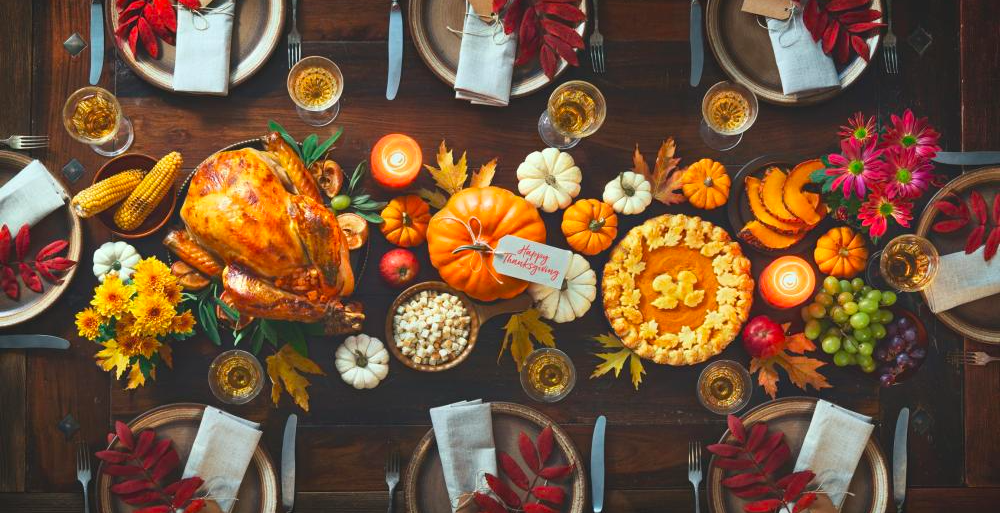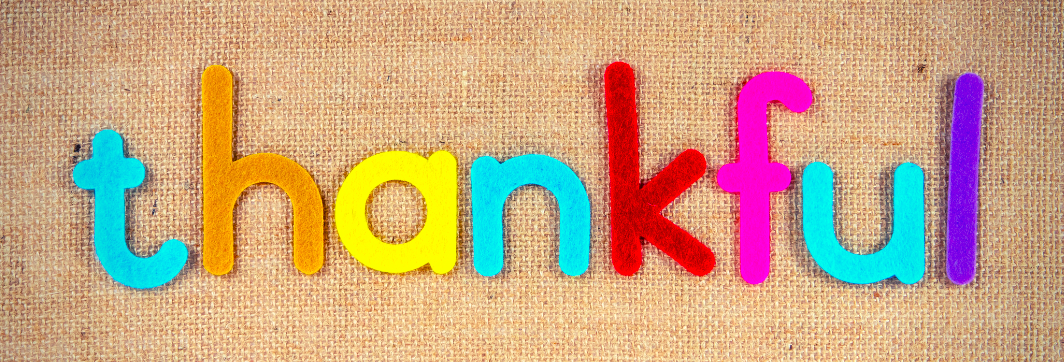One Thursday a year, there are people all over the country who go through a mild moment of torture.
It may have happened at one of your Thanksgiving dinners. The food is on the table, and everyone is starving. Then, the host utters those dreaded words: “Let’s all say one thing we’re thankful for.” Kids groan, and adults struggle to think of something meaningful to say in public.
Why is giving thanks so hard? And should being thankful on purpose only happen once a year on Thanksgiving?
We can change how we approach being grateful. Because thankfulness is something we are given, but it is also something we do.
Why Thankfulness is Important
Why is being thankful on purpose important?
- It’s a key part of our life journey – As we mature beyond an obsession with self to a healthier focus on God and other people, learning to be more thankful becomes a key step along that journey of personal transformation.
- God certainly deserves our thanks – God is worthy of our gratitude for all he has given us, so it’s natural for us to express thanks to him. Plus, being thankful is part of how God wants us to live, which makes it also a matter of obedience.
- It’s part of how God relates with us – Most religions assert that we earn God’s favor by our works, but Jesus showed that God’s grace is free. Our role is to accept that gift with thankfulness and then live our lives accordingly.
- It helps us treat others better – When we stop focusing on ourselves, we can better develop empathy and compassion for other people and becoming thankful and expressing gratitude are key parts of that process.
- To ease the effects of shame – Shame can come from unhealthy comparisons, perceptions, and expectations, but being thankful moves us away from playing the victim toward a humble posture of faith.
- We will feel better – When we do things God’s way, we feel better. Give it a try it with thankfulness. Choose to be more grateful as an ongoing habit, and you will experience more contentment and serenity.
Too often, however, we yearn for what we don’t have, leaving us in perpetual angst and unhappiness. Why not focus on what we do have instead? Why not be intentional about being grateful? Any of us can, because thankfulness is a choice.
“The discipline of gratitude is the explicit effort to acknowledge that all I am and have is given to me as a gift of love, a gift to be celebrated with joy.” (Henri Nouwen in “Being Intentionally Grateful” by Richard E. Simmons III)
Our Journey to Thankfulness
I am not naturally the most thankful of people. But I do feel thankful now, sometimes deeply and passionately so, for many things large and small. How did that happen with someone as self-centered as me?
I surely didn’t get there on my own. God taught me, slowly and surely, how to be more thankful.
Over time, God also helped me develop empathy. Earlier in life, I didn’t consider myself indifferent or insensitive, but I acted that way at times. It was a by-product of thinking mostly about myself. God showed me that we can be intentional on becoming more empathetic.
Looking back, it’s clear where much of my thankfulness came from: my toughest times! Trials help us develop perspective of what life is really all about. When our faith is stretched, we grow the most, and we can develop a depth of appreciation we wouldn’t achieve otherwise.
I also became more thankful as I increased my understanding of God and myself. I saw that God is compassionate and loving all the time. That the depth of his gifts of forgiveness, guidance, and eternal life are beyond measure. And that he gives those blessings to us in spite of the fact that we don’t deserve them. His mercy, grace, and love are boundless. How can we not be thankful about that?
Unfortunately, on a day-to-day basis, most of us are not as thankful as we should be or could be. It seems to be something we have to grow into. But if we are willing, God will teach us to be grateful, and it is something we can choose to learn and improve upon one step at a time.
“Thanksgiving begins with the recognition of who really deserves the credit and glory for what we do. It is most pleasing to God, but it also does something to us. It is life-giving and transformative.” (“Being Intentionally Grateful” by Richard E. Simmons III)
Choosing to Be Thankful on Purpose
We can be intentional about becoming more thankful if we choose to, and here are some examples how:
- During our morning quiet time, we can develop the discipline to count our blessings and even write them down. And we can pray for God to make us more thankful, at least for today. It’s our choice.
- Being thankful includes sharing our gratefulness. We can appreciate others more often with something as simple as a verbal “thank you” or a more personal expression such as a note. It’s our choice.
- We can dwell on negative perceptions (what we should have), expectations (what we feel we deserve), and comparisons (what other people have), or we can learn to let those feelings go. It’s our choice.
- There is often much good that comes from trials. God does his best work in our toughest circumstances, and if we learn to focus on gratitude in those times, it changes us for the better. It’s our choice.
- One of the best ways to be more thankful is by serving others. There are many hurting people for whom every day is a struggle, and making their life better can help change our entire outlook. It’s our choice.
Being thankful on purpose is something any of us can do if we choose to, and it can change our entire perspective on life.
Simply by searching for daily blessings, being grateful for the little things, saying “thank you” once in a while, and helping others along the way, our world becomes better, and we make it better for those around us as well. We can be thankful on purpose, one step at a time.
Question: What are some of the things you are most thankful for?
Action: Pick 1 of the 5 items above to work on over the next month.



